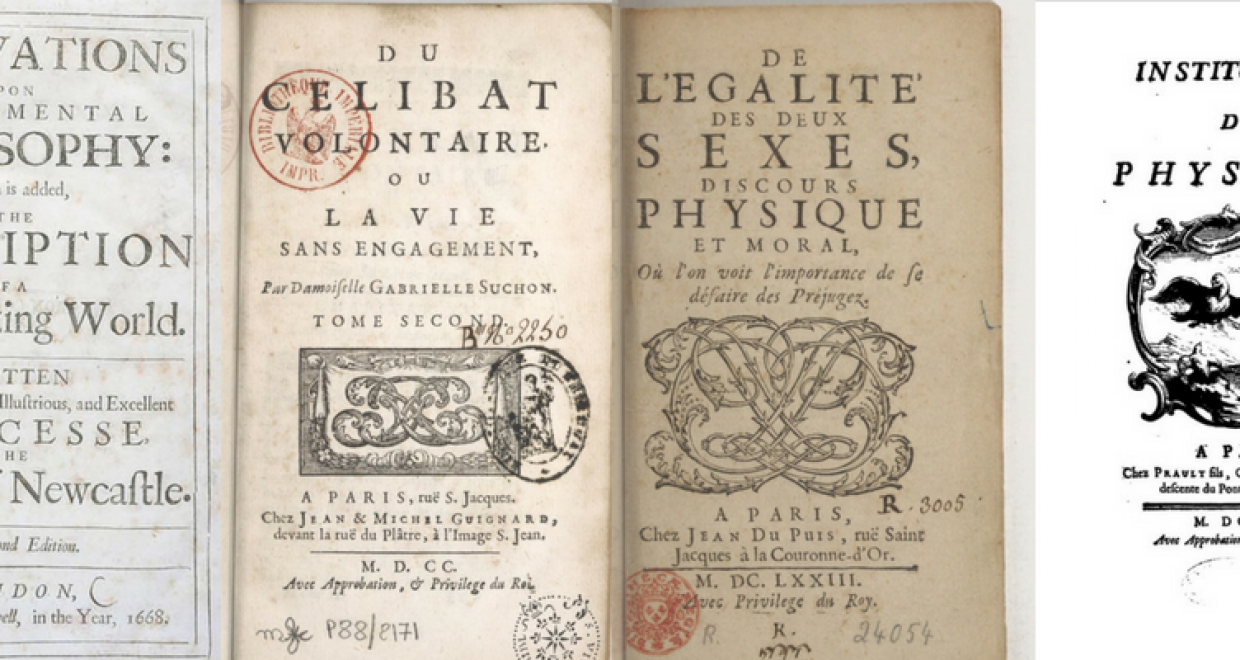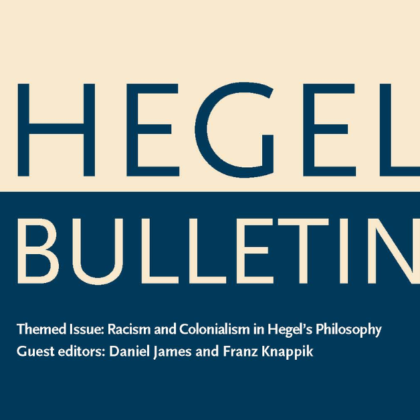Why Revisit the Early Modern Canon?
The thing about canons is that they seem sacred. Challenging them, even revisiting them, can seem heretical. Facing these facts is the first step in addressing the intransigence of the early modern philosophical canon. Step two involves noticing just how much the canon leaves out. There are no women; there are no people of colour; the canon is focused on Western philosophy but even more narrowly on northern European thinkers (where are the Spanish, Italian, and Portugese thinkers?). Because there is a robust intellectual historical record of the early modern period – thank you, Gutenberg! – with only a slight effort it is easy to see that there were women philosophers, philosophers of colour, philosophers from other countries…. Step three is asking: What to do?
The short answer is ‘a lot!’, both as individuals and collectively. Over the past 3 years, a Social Sciences and Humanities Research Council of Canada funded project, New Narratives in the History of Philosophy, has helped to bring international researchers working independently together to interconnect their projects, train students, and build infrastructure, like the teaching resources of Project Vox at Duke, the transcriptions of querelle.ca at McGill, and the Digital Collection and Bibliography at Simon Fraser (still in progress) (and more) that will help both present and future students and researchers do something.
In ‘Revisiting the Early Modern Canon’, I challenge the themes that hold the existing canon together and propose we look at the way philosophical accounts of mind and education intersect. Education has long been a central philosophical question, and, for some reason, in the mid-20th century, we stopped being so interested in it. The topic of education comes loaded with lots of sub-questions: what counts as a good education, the relation of truth to education, the role of emotions in effective education, how a good education requires both reasoning and habit, how reasoning and habit interact in education, the political assumptions in any educational system, to name a few. These questions were front and center in the 17th and 18th centuries – even canonical figures like Descartes, Locke and Rousseau write about education. However, the period is also full of arguments and discussions about women’s education that drive the discussion forward. It is no surprise that there are a slew of women doing philosophy around this question that stands to impact both them, and their daughters, so much.
It’s hard to know why philosophical interest in education has dropped off in the past decades. Maybe it’s because the dominant view in the discipline has become of philosophy as system building. Yet there is nothing inconsistent between a philosophical system and a focus on education. Indeed, two notable early modern women systematic philosophers — Margaret Cavendish and Emilie du Chatelet – both take education seriously and demand their systems be able to account for how we develop cognitively and morally. Karen Detlefsen in ‘Du Chatelet on Women’s Minds and Education’ makes this clear about Chatelet.
There is also a long tradition of thinking about philosophy as challenging established systems. In the 17th century, women writing on education challenge the systemic inequalities between men and women. They deploy skeptical methods to call into question the metaphysics supporting those equalities. They imagine thinking as assuming a natural equality: each of us owning our own thoughts. They put into practice learning to think in this sense. My heroines are Marie Le Jars de Gournay, Anna Maria van Schurman, Françoise d’Aubigné, Madame de Maintenon, Mary Astell, and Gabrielle Suchon. There is also the hero of François Poulain de la Barre.
These discussions of education are quite relevant today, as especially in the US and the UK public education is under increasing financial and political pressure. We are already seeing closures of philosophy programs on the grounds that we do not sufficiently prepare students for their work-life. The history of philosophy can help us mount a response, and in a way that also addresses the problem internal to philosophy of gender imbalance in curriculum!
Find out more about the New Narratives in the History of Philosophy project in the podcast below and enjoy free access to Lisa Shapiro’s article Revisiting the Early Modern Canon, published in Journal of the American Philosophical Association, for a limited time only.






